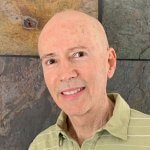Less Is Better
I CONTINUE TO LOOK for ways to simplify my life. At age 71, I want fewer things to deal with and to worry about. To that end, here are five steps that my wife and I are taking:
1. Consolidating finances. I mentioned in an article last year that my wife and I have consolidated our investments at Vanguard Group, while our savings and checking accounts are at a local credit union.
I’d also like to trim the number of exchange-traded funds (ETFs) we have at Vanguard. We currently have six. I’d like to reduce that number to three. I believe it would further simplify our finances without sacrificing performance. I envision a low-cost, highly diversified portfolio consisting of these ETFs:
- Vanguard Total World Stock ETF (symbol: VT)
- Vanguard Total Bond Market ETF (BND)
- Vanguard Short-Term Inflation-Protected Securities ETF (VTIP)
Currently, a personal financial advisor from Vanguard is managing our investments. I’ll have to fire her because she’d never approve of a portfolio without a total international bond index holding.
What about making our portfolio even simpler by owning just one fund, such as Vanguard Target Retirement Income Fund (VTINX)? Even though it’s a fund of funds, I feel uncomfortable putting all our money in just one fund because of the lack of flexibility.
For instance, if I needed to withdraw money from my investments in a bear market, I’d probably want the money to come from my short-term bond holdings. When you own a target date fund, you don’t have that option.
I’ll wait until my portfolio rebounds from this bear market to make any changes.
2. Consolidating medical records. This year, I switched medical providers. I chose the University of California-Irvine (UCI) as my primary provider. It can give me all the medical services I need.
My previous provider would sometimes refer me to specialists who weren’t within the same medical group. As a result, all my medical records weren’t available in one, easily retrievable location.
Now, all of my doctors’ notes, tests, medications and vaccination records are located on UCI’s medical website. This increased transparency can help prevent duplicate tests and prescriptions, while providing me with better overall health care.
3. Owning fewer automobiles. After my wife and I retired, we realized owning a second car wasn’t a necessity. We rarely needed two cars. When we did, one of us could have easily used a ride-sharing service.
Our Free Newsletter
Our 2007 Honda Fit is unreliable. Instead of replacing it, we’re going to give it a go with one car. Not only will we avoid purchasing another vehicle, but also we’ll save on insurance, registration and maintenance costs. In addition, there’ll be time savings because we won’t have a second car that needs to be gassed up or taken to be serviced.
4. Using less water. I’m debating today whether I should take a shower or wash my car. I shouldn’t do both. I live in California, where we’re living under an extreme drought. The state has asked residents to voluntarily reduce water usage by 15%. In some parts of California, there are restrictions on outdoor watering.
Where we live, there are no mandatory restrictions. But my wife and I are careful not to waste water. For instance, when we’re cleaning the floors or doing other household chores, we pour the excess water on our plants. We also don’t let the water run when brushing our teeth or showering.
We could easily afford to pay a penalty and use as much water as we desire. But we don’t see it as a money issue. It’s not about what we can afford—it’s about doing what’s right.
5. Taking shorter trips. My wife and I recently came home from a five-week trip to the U.K. Although we had fun, it was too long. We were exhausted when we got back. Maybe driving on the left-hand side of those winding, narrow streets had something to do with it. I know my wife was uncomfortable watching me navigate those roads.
After returning home, I told her we aren’t spring chickens anymore. It might be wise to limit our overseas trips to no more than three weeks to reduce the chances of getting caught abroad with a medical disorder. Although we could purchase insurance for medical care outside the U.S., it’s always best to be close to your own doctors in case of an emergency.
 Dennis Friedman retired from Boeing Satellite Systems after a 30-year career in manufacturing. Born in Ohio, Dennis is a California transplant with a bachelor’s degree in history and an MBA. A self-described “humble investor,” he likes reading historical novels and about personal finance. Check out his earlier articles and follow him on Twitter @DMFrie.
Dennis Friedman retired from Boeing Satellite Systems after a 30-year career in manufacturing. Born in Ohio, Dennis is a California transplant with a bachelor’s degree in history and an MBA. A self-described “humble investor,” he likes reading historical novels and about personal finance. Check out his earlier articles and follow him on Twitter @DMFrie.
댓글 없음:
댓글 쓰기